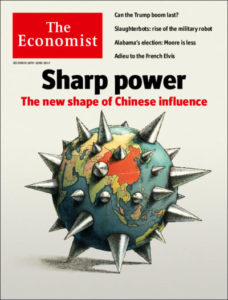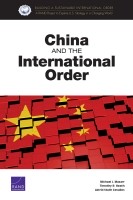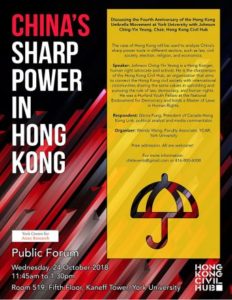 Chinese telecommunications company ZTE has been helping Venezuela’s autocratic government construct an advanced citizen surveillance program, Slate’s Mia Armstrong reports.
Chinese telecommunications company ZTE has been helping Venezuela’s autocratic government construct an advanced citizen surveillance program, Slate’s Mia Armstrong reports.
A Reuters investigation published Wednesday provides a detailed look into the development and rollout of Venezuela’s new smart ID cards known as “fatherland cards,” which President Nicolás Maduro debuted in late 2016 with the help of ZTE, she writes:
It also looks into the ways the government has increasingly been linking the card—which more than half of the country’s 31 million citizens already have—to individuals’ voting records, use of social programs like subsidized food and health care, and other personal behavioral data, all of which it stores in its centralized “fatherland database” that it hired ZTE to build….
As Daniel Benaim and Hollie Russon Gilman explained in a Future Tense piece in August, other governments, too, have reportedly been working with Chinese firms to develop high-tech programs to collect data on their citizens: building a large-scale facial recognition project in Zimbabwe, equipping law enforcement officers with body-worn cameras with A.I.-powered facial-recognition technology in Malaysia, and constructing a highly surveilled smart city in Egypt.
 The news coincides with reports that Beijing is fomenting instability in Sri Lanka, while China expert John Fitzgerald has called for Australia’s federal government’s probe into freedom of speech in universities should examine the role of Beijing’s Confucius Institutes.
The news coincides with reports that Beijing is fomenting instability in Sri Lanka, while China expert John Fitzgerald has called for Australia’s federal government’s probe into freedom of speech in universities should examine the role of Beijing’s Confucius Institutes.
China and Australia are also engaged in a struggle for influence in the South Pacific, which may complicate prospects for a robust ‘Indo-Pacific concert of democracies’, reports suggest.
Investments linked to the Apec meeting are only the latest signs of the rivalry between China and Australia that is heating up in the South Pacific just as US engagement starts to fade, The FT notes.
“Many see China as Asia’s pacesetter,” notes Dan Twining, president of the International Republican Institute. “In fact, its Marxist-Leninist political system makes it an aberration — as well as a threat to countries with more open systems, who fear subversion from Chinese economic or political meddling.”
 “America’s interest lies in an Indo-Pacific region whose citizens can fulfill their full potential through freedom and resist new forms of empire-building,” he adds. “Such countries will be natural partners in sustaining a balance that keeps the peace in the world’s emerging center of wealth and power.”
“America’s interest lies in an Indo-Pacific region whose citizens can fulfill their full potential through freedom and resist new forms of empire-building,” he adds. “Such countries will be natural partners in sustaining a balance that keeps the peace in the world’s emerging center of wealth and power.”
Global adversaries, especially states like Russia, China and Iran, use [what a National Endowment for Democracy report calls] ‘sharp power’ tools of coercion, disinformation and proxy campaigns to achieve their geopolitical goals and weaken Western influence, the US Institute of Peace notes:
This new way of doing business threatens the post-Cold War stability that fostered peace, freedom and development around the globe. To maintain freedom and stability, the United States and its allies must utilize the same soft power tools that helped end the Cold War and allowed democracy to flourish.
 Former U.S. ambassadors Rep. Francis Rooney (R-FL) and Rep. Don Beyer (D-VA) will discuss how soft power tools can and should be used to counter sharp power employed by global adversaries at USIP’s seventh Bipartisan Congressional Dialogue on Wednesday, November 28 from 9:00-10:00 a.m.
Former U.S. ambassadors Rep. Francis Rooney (R-FL) and Rep. Don Beyer (D-VA) will discuss how soft power tools can and should be used to counter sharp power employed by global adversaries at USIP’s seventh Bipartisan Congressional Dialogue on Wednesday, November 28 from 9:00-10:00 a.m.
Join the conversation on Twitter with #BipartisanUSIP.
Speakers
Rep. Francis Rooney (R-FL)
19th Congressional District of Florida, U.S. House of Representatives
@RepRooney
Rep. Don Beyer (D-VA)
8th Congressional District of Virginia, U.S. House of Representatives
@RepDonBeyer
Nancy Lindborg, moderator
President, U.S. Institute of Peace
@nancylindborg
Rep. Rooney is the vice chair of the House Foreign Affairs Committee and former U.S. ambassador to the Holy See. Rep. Beyer is the vice ranking member of the Science, Space and Technology Committee and former U.S. ambassador to Switzerland and Liechtenstein.







